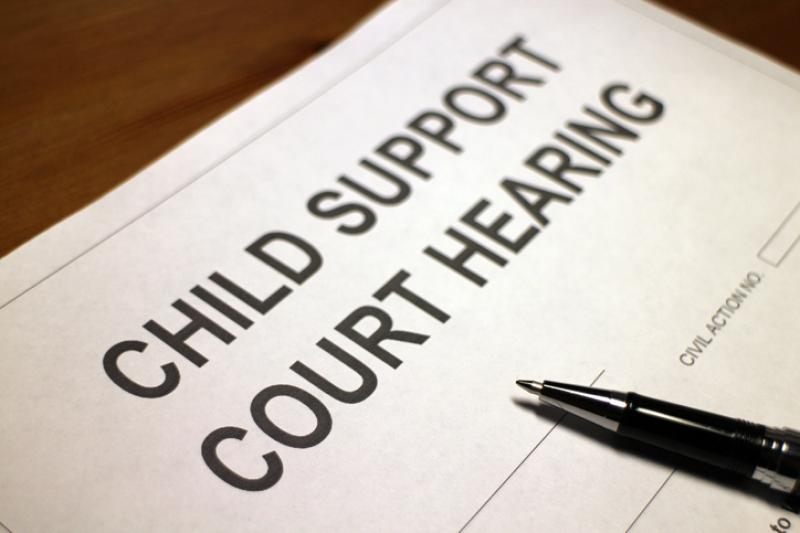What to Do if Your Spouse Refuses to Pay Child Support

Raising children is a financially, emotionally, and physically expensive endeavour. Parents worldwide face the challenge of providing for their children, and in some cases, one parent may be legally required to pay child support to help with costs. If your spouse refuses to pay child support, there are ways that you can take action. Learn what the law says about child support and what you can do with a child support lawyer.
Understanding Child Support
Child support is a legal obligation a parent must pay to support their children. The parent responsible for paying child support is known as the obligor, while the parent receiving the payments is known as the obligee. Typically, child support is paid to the custodial parent, who has primary physical custody of the child or children. Child support payments are intended to cover basic needs and other expenses related to the child's upbringing. What does that include?
The following is what child support is meant to cover:
- Food
- Clothing
- Shelter
- Medical bills
- Educational costs
- Extracurricular activities
The amount of child support that the obligor is required to pay is determined by the laws in your area, and the amount is based on some factors, such as:
- The incomes of both parents
- Number of children in the family
- Amount of time the children spend with each parent
The court may use a formula to calculate the amount of child support that must be paid or consider other factors to determine an appropriate amount. In some places, the court may also consider the assets of each parent, the costs of health insurance premiums, and the amount of money each parent is already paying for other children. Sometimes, the court may order the obligor to spend additional money for special needs or extraordinary expenses.
Consequences of Not Paying Child Support
Not paying child support can have serious consequences for the obligor. If the obligor does not pay the court-ordered amount, they may violate a court order, which could lead to serious legal repercussions.
Possible consequences of not paying child support include:
- Wage garnishment
- Property liens
- Driver's license suspension
- Passport revocation
- Possible incarceration.
In addition, not paying child support can also have serious financial repercussions. The obligor may be responsible for paying interest on any past-due payments and may be required to pay the obligee's attorney's fees if the obligee takes legal action to collect the payments.
What to Do if Your Spouse Refuses to Pay Child Support
If your spouse refuses to pay child support, there are steps that you can take to ensure that the payments are made. The first step is to negotiate with your spouse to reach an agreement. However, if you cannot agree, consider the following options.
Taking Legal Action
If you cannot negotiate an agreement with your spouse, you may need to take legal action to collect the payments owed. One option is to contact your local child support enforcement agency to help you gather the payments. The agency can possibly enforce the court order and help you collect the amounts that are owed. You may also be able to file a motion with the court to have your spouse held in contempt of court for not paying the court-ordered amount. If the court finds that your spouse is in contempt, the court may order your spouse to pay the past-due payments and order your spouse to pay your attorney's fees.
Hiring a Child Support Lawyer
For some, legal action through a child support agency might not work. Another option you can take is to consult with a child support lawyer. A child support lawyer can help you understand the legal process, advise you on the best action, and represent you in court if needed. When hiring a child support lawyer, it is important to find someone experienced and knowledgeable about child support laws. You should also ensure that the lawyer is familiar with the laws in your area, as child support laws can vary from place to place.
Tips for Working with a Child Support Lawyer
When working with a child support lawyer, it is important to be prepared. Ensure you have all the necessary documents, such as court orders, income information, and financial statements. You should also gather evidence to support your case, such as emails, text messages, and bank statements. When communicating with your lawyer, it is also important to be clear and concise. Explain your situation and the course of action you would like to take. Be honest and open with your lawyer, as they will be better able to represent you if they have all the facts.
Child support is a legal obligation with serious repercussions. However, there are still spouses out there that refuse to do so. Thankfully, there are ways that you can take action to ensure that the payments are made. You can seek help from your local child support enforcement agency or consult a child support lawyer. Working with a child support lawyer can be daunting, but if you are well-prepared and honest with your lawyer, you can ensure that your case is handled properly. If you face child support nonpayment, it is important to remember that you are not alone and that options are available to help you collect the payments owed.
More to Read:
Previous Posts:









